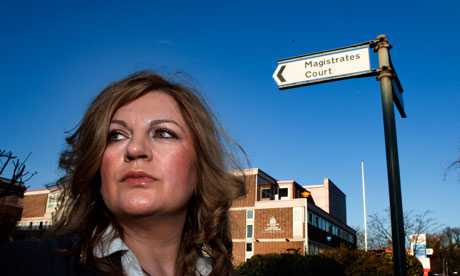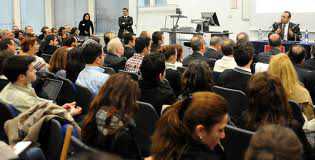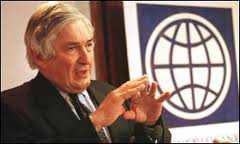Very few people know what the job of a professional court interpreter involves. ALS is trying to get it done on the cheap
Magdalena Glowacka

Very few people know what the life of a professional interpreter is like. I have worked as a Polish interpreter for a number of years, and although I am probably not the most experienced person in the field, I have worked long enough to find the deal under which the Ministry of Justice has contracted Applied Language Solutions to supply all linguistic services in English and Wales unacceptable. We are not too greedy or proud to accept the new rules. We can see how how flawed they are.
Only very few professions require someone to be totally flexible – and I mean totally. I no longer recall how many times I have been called in the middle of the night to come down to a police station to interpret for someone in custody, or to assist with a witness statement, nor how many times I have had to call off a meeting with people I care about because the job comes first.
How many professionals have to deal with a beaten and traumatised wife, a woman pushed onto a railway track by her loved one on Valentine’s Day, a small girl raped by her stepbrother, or a man who had been raped in prison? How many of you have had to deal with the threats of being stabbed because the client didn’t realise the interpreter was there to help him? I have. People have vomited on my suit. I have stepped into puddles of urine on a cell floor. Nobody warned me that I would have to deal with such situations. I had to learn how to cope with them.
Only people who have been done this job for a number of years know what it is like to stand in the witness box for hours as a defendant is cross-examined, or how it feels when your client is mentally ill and talking nonsense or insulting the judge. It takes strength and courage to interpret their words into English. Only a professional interpreter knows what it is like to sit in the dock next to someone charged with murder or an offence involving serious violence.
Nobody else really knows that it is extremely difficult job, which carries incredible responsibility, and which is emotionally exhausting. Some critics of the interpreters who are protesting about the new system have no idea of what the job involves. Let’s take the payments. Although the rates of pay were decent, they were never good. The old national agreement that used to regulate our work stipulated that we should be paid within six weeks for each job. I can barely ever remember being paid within that time. On countless occasions I have awaited payment for months. Most Christmases, I was totally cashless due to the fact that the court staff was too busy to sort out the payments before the end of the year. I no longer remember how many times I have had to chase courts for money, remembering not to be too harsh so I might be booked again. On numerous occasions I came to court to interpret for one client and ended up interpreting for three or more during the day, or was put in a position when I had to interpret for two or three defendants in the same proceedings because of ‘cost savings’.
I do not want to hurt anybody’s feelings, but there have been a number of occasions when I was paid just for coming to court and once I arrived there turned out to be more than one interpreter booked for one case – or a case was simply discontinued and nobody bothered to cancel the interpreter. Those sorts of things are never mentioned when the cost to the taxpayer of interpreting services is quoted. And we pay taxes too.
We are not too proud to work for ALS, although perhaps we should be – given that they require us to work for the same rates as people without any qualification whatsoever that would entitle them to work as an interpreter in the old system. We just feel it is not right. Besides, lots of professional interpreters did not just acquire the recommended minimum qualification under the previous system, which is a Diploma in Public Service Interpreting and 400 hours of experience. Many hold at least one masters’ degree, if not more, in translation, conference interpreting or law, as well as attending conferences and short courses.
To be completely frank, the system was not working well, but we were doing a good job. We were helping people to communicate with their lawyers. We were the ones who explained to people how the UK court system works. When they were not represented, for whatever reason, we very often acted as psychotherapists – listening to the problems of complete strangers and dealing with personal tragedies. Sometimes we were asked for small change for a ticket home, something to eat or a cigarette, or a client asked if they could make a call from our mobiles at our expense. Try telling someone who is, like you, a foreigner in this country and in a seemingly hopeless situation that “it’s not my job” to agree to these requests.
I have a confession to make. Apart from being an interpreter, I also work as an examiner for a body that was providing the necessary qualifications to perform this job. Each year I have been told that I cannot pass anybody whom I would not trust to act as my interpreter, if I could not speak English. This was, until recently, a minimum standard threshold for all professional interpreters. I don’t know what standards will operate under the new system, but from what I have heard they are considerably below that threshold. Anyone who can hire someone who can simply speak two languages, at times very poorly, has no idea of the importance of interpreting within the criminal justice system.
So it is not that we do not want to work for ALS: in spite of all these drawbacks, most of us love the job. But we do need recognition and respect for the job we have been doing. Put simply, the current offer is ludicrous.
Interpreters are holding a protest outside the Commons this afternoon about the ALS contract with the Ministry of Justice
www.guardian.co.uk, 15 March 2012





